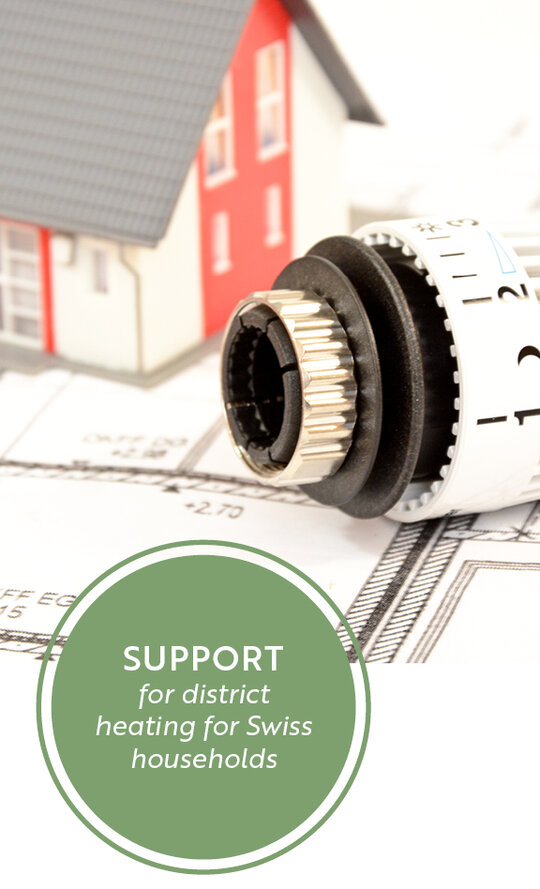
An honest support
The days of climate-neutral are over: today we support projects that are transparent and verifiable.
Our responsibility for people and the environment has been an important issue to us as a company for over 20 years. Not a week goes by without us discussing it in-depth. What sustainability means or what really is sustainable, however, is usually another matter altogether. We’re honest and transparent about this and don’t present ourselves as better than we are. We work with our customers, supporting them in their choice of climate-friendly products, and inform them about the impact of their decisions so that they can address the issue of sustainability as consciously as we do.
Firstly, it is important to know your greenhouse gas emissions:
Greenhouse gas emissions are divided into three categories, known as Scopes:
Scope 1 comprises emissions from sources directly owned or regulated by companies. This includes emissions from energy sources at the company location, such as the combustion of natural gas or heating oil in boilers and ovens, as well as coolants for refrigeration systems. Scope 1 also includes emissions from company-owned vehicle fleets.
Scope 2 covers indirect greenhouse gas emissions from purchased energy, such as electricity, water vapour, or district heating and cooling, which are not generated by the companies but are consumed by them.
Scope 3 refers to the indirect release of greenhouse gas emissions in the company’s upstream and downstream value chain. An example of this is the emissions generated by our suppliers for the production and delivery of our products.
As a food-producing company, 95% of Pacovis’ emissions fall under Scope 3. The remaining 5% is divided between Scope 1 and 2.
Our approach to effective climate protection
Until recently, it was easy for us: we had licensed our naturesse range as ‘climate-neutral’ via carbon offsetting schemes, which meant that we were able to officially communicate that these products were ‘climate-neutral’. But somehow we were never really keen on the expression, as the term ‘climate-neutral’ is deceptive. Our own research and various critical reports from other companies and the media encouraged us to change direction. We took the logical step of cancelling our ‘climate-neutral’ licence at the end of 2023.
So what now? Our new direction is based on the resolution passed at the 2015 climate conference in Paris and the WWF “Fit for Paris” guidelines that came out of it. There it was established that although the current model offsets the corporate footprint, it does not motivate companies to make a comprehensive contribution to reaching the global net-zero target. Instead of offsetting the number of tons of CO2 emitted with the number of tons of CO2 saved, companies should invest a voluntary sum in climate protection.
Our commitment to climate protection
In recent months, we have searched long and hard for a solution that is transparent and honest, where the positive impact is verifiable for us and which we can get behind 100 percent. We have set up a fund into which we pay an annual contribution of 300,000 Swiss francs. This money can be used to support climate projects that meet our criteria. The projects are also reviewed by independent third parties.
We are actively seeking suitable projects in Switzerland, Germany and Austria.
The criteria we use to select projects:
Additionality: The project would not be possible without the additional financial support.
Factoring in carbon leakage: The project does not generate any emissions outside its direct sphere of influence.
Exclusion of double counting: The climate impact of the project is not offset twice.
Verifiability and permanence of the impact: The project outcome is verifiable and the climate impact is stable for years to come.
Sustainability: The project has no negative impact on social and ecological issues.
Conservative quantification: The project’s emission reductions should be calculated conservatively and overestimates avoided
We have already found a project that meets our criteria and which we actively support.

Agro Energie Schwyz AG
We support Agro Energie Schwyz AG, which generates district heating at the Wintersried Energy Centre and connects households in the surrounding region to the district heating network. Instead of each building being heated individually – and mainly with fossil fuels – the heat is generated centrally in a wood-fired power station and a biogas plant and supplied to the customers. This makes it possible to reduce greenhouse gas emissions.
The project was financially supported by the federal government for several years as part of the carbon-offsetting scheme. In 2021, however, the project stopped receiving contributions for the emissions saved, and is now no longer able to connect non-profitable buildings to the district heating network. Pacovis AG is now providing financial support for the existing connections from the offsetting project until the end of their service life (15 years). We are also supporting new connections in 2024 with the Agro Energie Schwyz AG anniversary campaign, so that non-profitable buildings can also be connected to the grid.